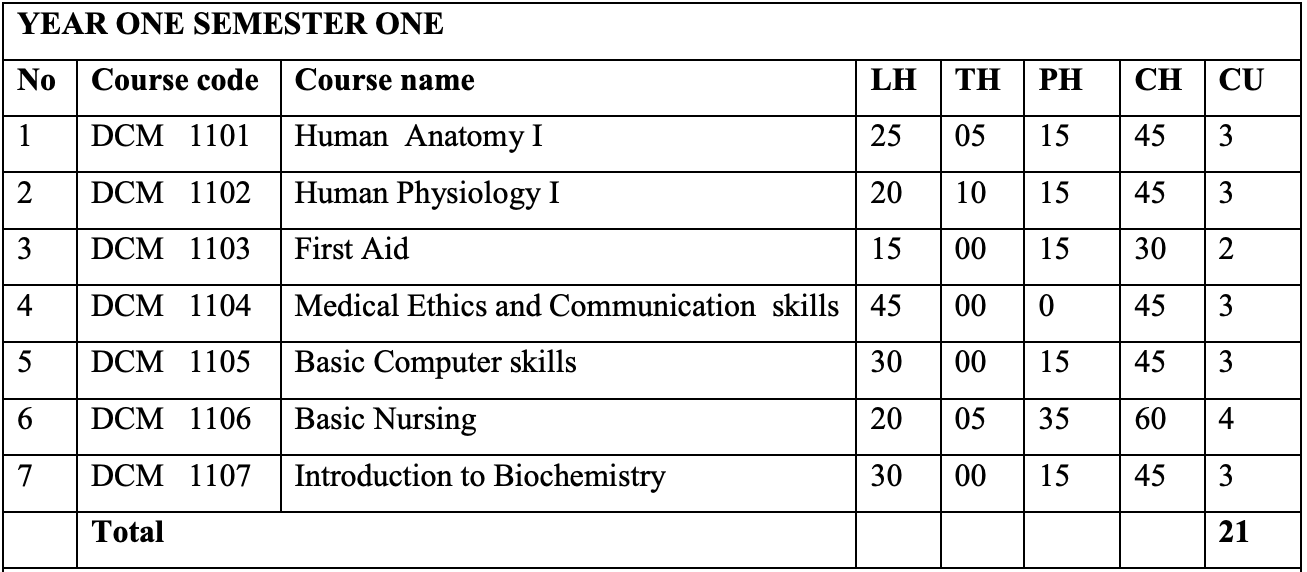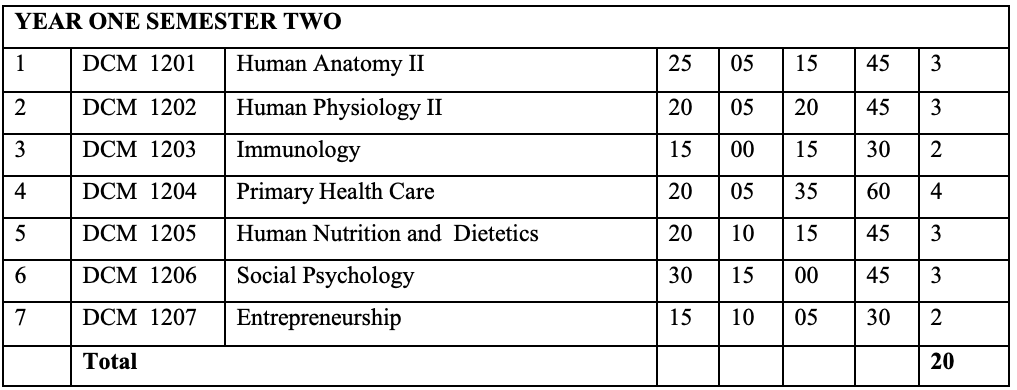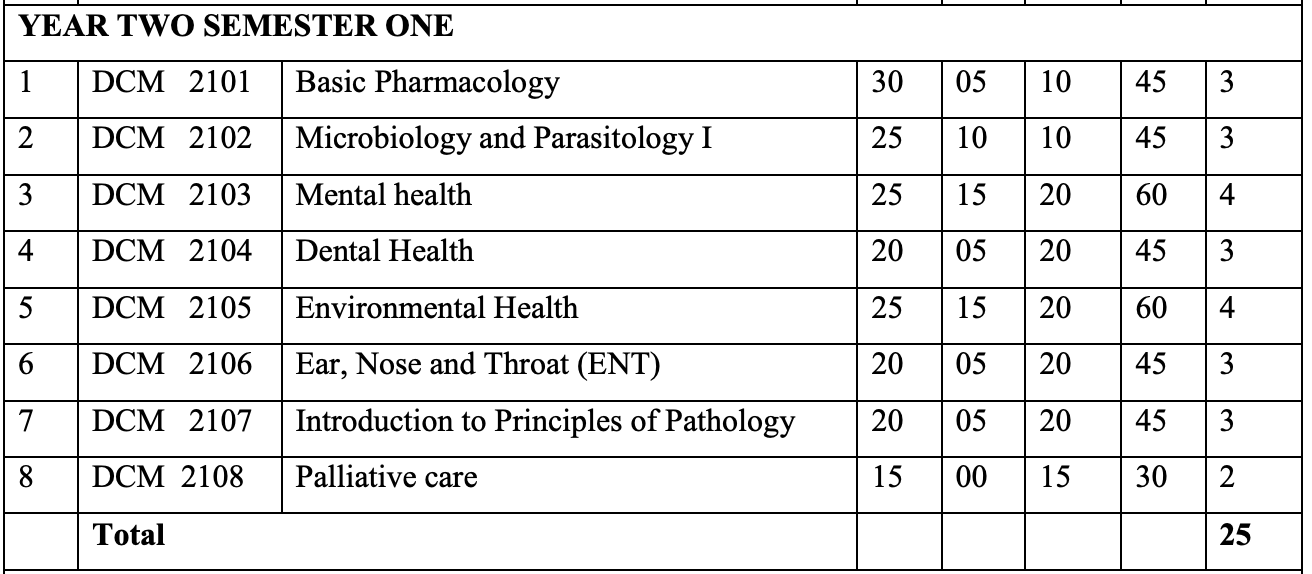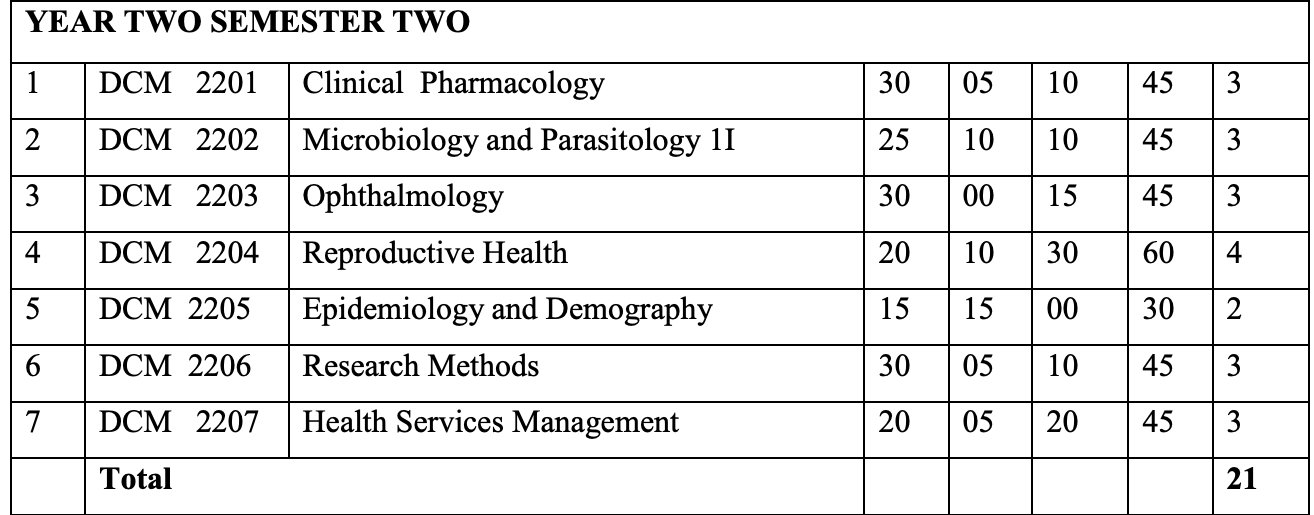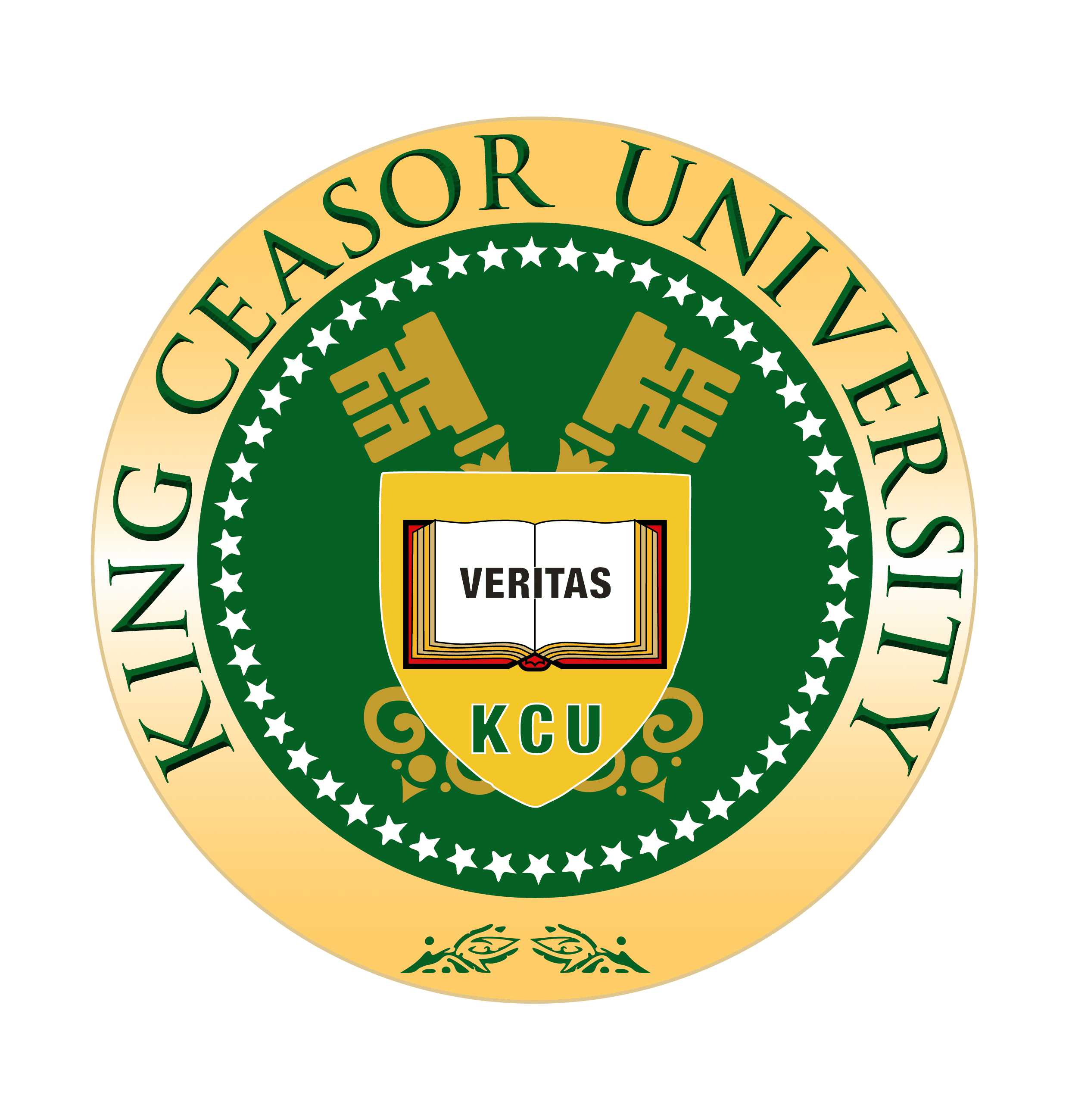
Ignite The Future
The Diploma in Clinical Medicine and Community Health program provides students with learning experiences to help develop those skills and attitudes necessary to excel in clinical medicine and community health. The training for the Clinical Officers is three years post-secondary school (after completing the Uganda Advanced Certificate of Education or its equivalent as deemed appropriate by regulatory bodies) and is comprised of clinical training at tertiary institutions. The Programme is structured in a way that allows infusion of both theory and practical training activities for students.
The program is completed in a minimum of six semesters (3 years) over three calendar years [maximum of ten semesters (5 years)] in which trainees are facilitated in different courses with a total of 140 credit units.
2. To equip trainee with knowledge, skill and attitudes required to;
Target groups
The Diploma in Clinical Medicine and community health is a full time programme designed to take a minimum of three (3) academic years and a maximum of five (5) academic years, unless the School of Allied Health Sciences Board recommends and the KCU Senate approves otherwise.
In addition, each academic year shall be divided into two (2) semesters each lasting 17 weeks.
Direct Entry
Applicants for this program should possess the Uganda Certificate of Education (UCE) and the Uganda Advanced Level Certificate of Education (UACE) with at least a principle pass in Biology and a subsidiary pass in any of the following subjects; chemistry, physics, mathematics, foods and nutrition.
Extensors
In order to be eligible for admission into the DCM program, extensors must possess;
International Applicants
Applicants with foreign academic qualifications will be required to show certified proof of the stated qualifications from the relevant examination boards. They must be proficient in English Language from an accredited institution. Where necessary the applicant’s documents will have to be verified/equated by relevant bodies like National Council for Higher Education (NCHE) or Uganda National Examinations Board (UNEB).
At the successful completion of the program, the graduate shall be able to;
Tuition fees for privately sponsored students shall be **** USD per semester. All students are required to pay other functional and non-functional fees as may be defined on admission.
This depicts allocation of time to various curricula activities with a total load of 140 credit units. The activities and their symbols are as follows: Overview lectures and seminars are shown as LH (lecture hours); Skills laboratory activities, practicals and clinical exposure are
shown as PH (practical hours) Tutorials sessions are shown as TH (tutorial hours)
